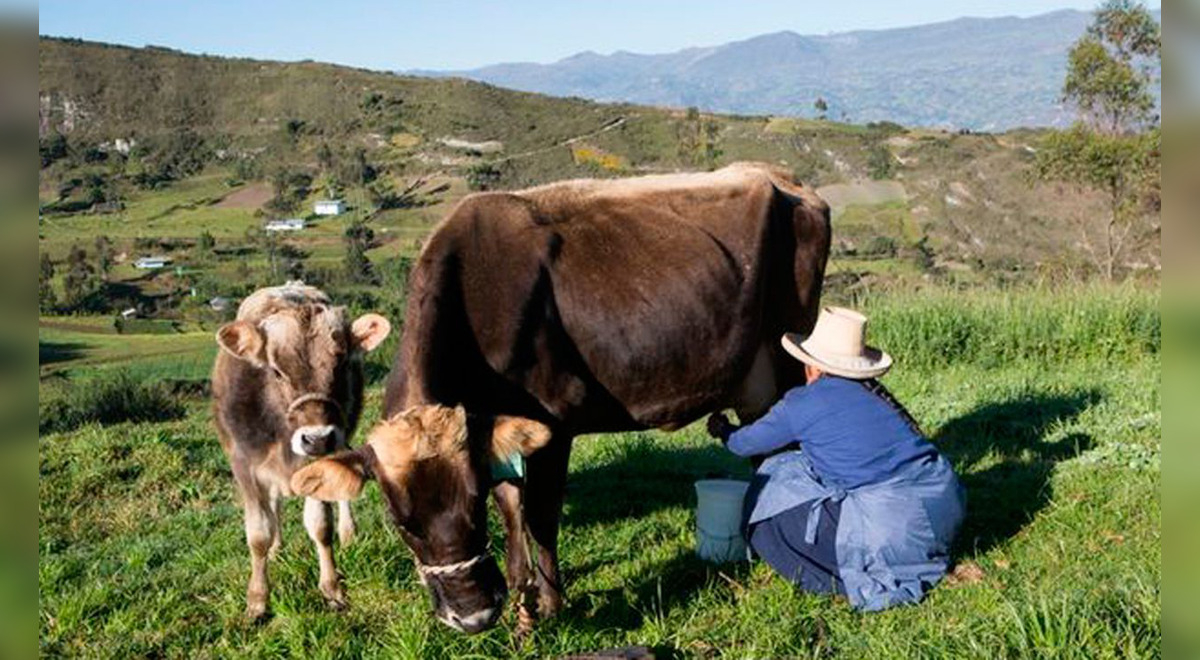
The Presidency of the Council of Ministers extended to April 29, 2024 the validity of the high-level executive table created to contribute to the attention and solution of the socioeconomic problems that the country’s dairy subsector is going through.
The team is made up of a representative of the Executive and institutions such as the INACAL and IndecopYo. It also brings together unions in the sector, includingConveagrus and Agalepas well as the private sector through the National Society of Industries.
The meetings of this working group are held every month and a half on average. These sessions have served to put on the agenda the main problems faced by dairy farmers at the national level, although, so far, no concrete measures have been achieved, mentions Giovanna Vasquezmanager of the National Agricultural Convention (Conveagrus) and representative of this union, in the dialogue space.
The union representative points out that the problem related to the high cost of inputs such as corn, wheat and soybeans, which are used to feed cattle, has been exposed before the executive board. Likewise, they discussed the dominant position exercised by the Gloria company in the dairy market. “Hand in hand with Agalep, we have taken these issues”, she comments.
However, it indicates that the team’s response has been unsuccessful. “Livestock is still in crisis. There is no concrete measure to deal with the whole issue of costs or to discuss with the industry its dominant position and the prices it pays to milk producers. There is no solution,” he underlines.
The same maintains Nivia Vargas, president of Agalep, who considers that the technical table has made little or no progress. “Every time we want to touch on the issue of production costs, everyone plays crazy. This table was created to mitigate the livestock crisis, but now, with this minister, the industry seems to have more weight than small farmers,” he warns. .
In the same sense, Giovanna Vásquez points out that this team has not had the capacity to respond. “The possibility was raised that producers could have access to inputs at prices that allow them, at least, to lower their production costs; however, there has been no response,” she emphasizes.
However, it stands out that it is in favor of extending the validity period, since this table is one of the few scenarios in which the sector can interact with the State and the private sector at the same time. “We have agreed to the expansion because here we can maintain a space for dialogue that Midagri does not offer us,” he says.
Dairy farming situation
The dairy farming sector is going through a deep crisis because, in recent years, the cost of inputs has tripled, says Giovanna Vásquez.
“There are enormous distortions in the market in terms of access to these inputs. Prices have increased in such a way that they are no longer sustainable with the amount that producers have (to pay),” he says.
The representative of Conveagro states that another factor that affects the sector is the “predatory prices” that Gloria imposes on milk. “The company estimates (these prices) in a discretionary manner and they have no technical or market support,” she says.
Therefore, he warns that “the crisis is aimed at the disappearance of the dairy sector” because the activity has already lost profitability.
Source: Larepublica
Alia is a professional author and journalist, working at 247 news agency. She writes on various topics from economy news to general interest pieces, providing readers with relevant and informative content. With years of experience, she brings a unique perspective and in-depth analysis to her work.











